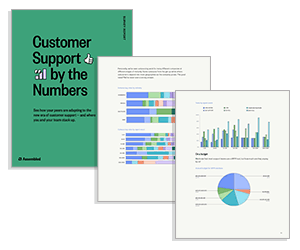This week we look at how police forces across the country use workforce management solutions to support their contact centre or control-room function.
How UK police forces roster their control-room personnel
Technology provider GMT Europe estimates that nearly half of the 43 police forces in England and Wales currently own a workforce management (WFM) solution that supports their contact centre – or control room – function. That said, the vendor also states that some of these tools are likely to have been supplied as additional modules alongside telephony systems and may not actually be utilised by the forces that possess them.
Those forces that do not own a dedicated WFM tool tend to use a combination of legacy ‘duty management systems’ (DMS) and spreadsheets to manage control-room shift patterns. However, this basic rostering mechanism can be time-consuming as shift rotations from the DMS typically need to be copied into the relevant spreadsheet before ‘positions’ in the control room can be manually assigned in line with the availability of staff.
This way of working can sometimes result in a poor fit of schedules to workload, with too much focus on rotations and too little attention paid to call demand and the necessary staffing requirement to support service levels. As a consequence, overstaffing is commonplace in police control rooms.
The challenges associated with police control-room workforce management
The police control-room environment is unlike any other contact centre. Where a standard contact centre operator will take scheduled breaks and finish at allotted times, police call handlers will frequently work outside of set parameters in order to conclude calls in a satisfactory manner. Ensuring that callers are not left to deal with stressful, upsetting or potentially life-threatening situations on their own is far more important than schedule adherence. That said, supervisors do need to have visibility of different agents’ schedules in order to accommodate missed breaks or to enable a handler to finish their shift as soon after the allotted time as possible. Similarly, supervisors should be aware when an agent has had to deal with a particularly distressing call and needs 15 or 20 minutes away from front-line duties in order to recover.
Aside from schedule adherence issues, the other common challenges associated with police workforce management are as follows:
- Police control rooms are prone to higher call peaks than other contact centre environments during critical incidents such as bomb alerts or events such as football matches. Moreover, each of these critical incidents or events will have their own call volume, distribution and handle time profile. For instance, a derby match between local football teams is likely to result in higher call volumes due to increased local tensions than matches held with teams from outside the district.
- Where many organisations see their demand decrease during the peak summer months, the police generally experience the opposite. Long summer holidays combined with warm weather encourage more public mobility and activities that, in turn, increase call demand.
- Unlike many commercial organisations, police control rooms have to deal with schedules that support 24-hour contact centre operations. They also have to manage late changes to schedules, which can result in high overtime payments. In addition, police control rooms tend to be highly unionised environments and therefore need to be carefully managed.
How police forces are using WFM tools
As outlined in the first section of this article, police call-handling staff have historically been scheduled using rotating shift patterns that are not particularly flexible in supporting call demand. WFM tools can help in this situation because they are designed to identify and understand call demand and staffing requirement at an incremental level – whether the centre using them operates just 35 hours a week or 24/7/365. They can also illustrate the gap between optimum schedules and current fixed working patterns and, in many cases, allow the user to test new shift patterns for appropriateness before implementation.
Other ways in which WFM solutions can be useful
- They typically incorporate a long-range planning tool to enable supervisors to manage holiday requests and understand the impact of accepting specific requests.
- They enable supervisors to manage shrinkage automatically, without the potential for human error. This is particularly useful for managing time away from the phones for call handlers who have dealt with particularly distressing calls.
- They give supervisors easy access to historical demand data, such as that relating to call peaks that resulted from a derby football match or local music festival, and allow the supervisor to mark these influences up against applicable future dates.
How to choose WFM software for police control rooms
Unlike commercial operations, police control rooms have to use public money to purchase their contact centre technology. They therefore need their WFM tools to demonstrate a transparent return on investment (ROI).
To best achieve this ROI, police forces should look for technology that includes some or all of the following features when choosing WFM software:
- Solid forecasting capability that integrates with disparate communication systems to gather and utilise historical data.
- Integration with corporate systems – for example, HR systems – which are commonly used as a repository of employee data that will be useful when scheduling staff. This data might include the fact that an employee has requested part-time working or that they have children and will require more flexible schedules.
- An unlimited number of ‘abstractions’ (activities) to reflect the large number of duties and absence types that exist in the police environment – for example, recuperation.
- The ability to manage different ‘time accounts’ – for example, the ability to maintain time off in lieu (TOIL) balances in addition to annual leave balances.
- Long-range scheduling – perhaps up to a year or 18 months in advance.
- Intra-day management functionality to deal with ‘on-the-day issues’. For instance, the system might include ‘find replacement employee’ or ‘employee search’ functions to find suitable employees in case of emergencies.
- Employee notification functionality – to automatically alert employees of schedule changes to pro-actively drive schedule adherence.
- Support for cross-midnight shift patterns.
- Built-in shrinkage management facilities.
- ‘What if?’ scenario-mapping (enabling a supervisor to test changes in shift patterns).
- The ability to accommodate numerous working patterns – including part-time staff.
- Crucially, the ability to schedule both call handlers and the radio operators who subsequently dispatch police units.
As a final note, it is also important that the control room supervisor requests adequate training in how to use the system. One of the biggest issues that police forces have with WFM tools is that they are not always taught how to use the systems to its maximum capacity. In some cases, they are not even made aware of the system’s full functionality. It is therefore critical that supervisors request appropriate and comprehensive training from their WFM provider during the implementation phase.
Further reading
Please see the WFM case studies on West Midlands and Humberside Police in the Workforce Management Reference Guide.
Special thanks to Pauline Smith MBE, Head of the Nottinghamshire Police Force’s Demand Management department, Advisor for the Association of Chief Police Officers’ (ACPO) National Contact Management Programme, and Board Member of the Call Centre Management Association (CCMA).
Contributors:
- Chris Dealy, Sales Director (Northern Europe) at injixo
- Karl Judd, Business Development Manager at GMT Europe
- Claire Richardson, Director (Workforce Optimisation Solutions) at Verint
Author: Jo Robinson
Published On: 6th Oct 2010 - Last modified: 17th Jun 2024
Read more about - Guest Blogs, Police, Shrinkage, Workforce Management (WFM)

















i work in police control room port harcourt in nigeria, i will like to come for a seminar to your organisation, so i can aquire more knowledge in my distress call centre.
Mohammed
We do not do any seminars, but we do occasional webinars. Please see our events pages for more details.